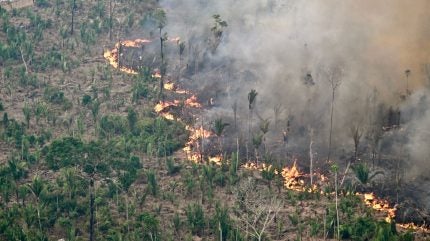
After seven years of deliberations, Indonesia says it aims to reach a free trade deal with the EU by the end of the month. According to a senior official, the deal will address about $30b of trade between the two actors.
The news comes as the EU aims to adopt the EU Deforestation Regulation (EUDR) by its December deadline, despite many calls for postponement within the bloc and from foreign governments. Indonesia has been especially outspoken on the matter, given the effect the EUDR would have on its exports.
Indonesia and Malaysia’s combined palm oil exports make up 85% of the world’s supply and around half of the bloc’s total imports. Indonesia’s Chief Economic Minister Airlangga Hartarto has called the EUDR “regulatory imperialism.”
At the same time, the government is eager for the trade deal to be concluded. Indonesia’s Vice Minister for Trade, Jerry Sambuaga, said the country wanted the deal “to be completed this year, hopefully by the end of this month […] We hope to have this done as soon as possible.”
What’s the EUDR?
The EUDR was introduced in 2023 to limit the bloc’s contribution to global deforestation. According to an Oxford University study, deforestation is the second largest contributor to global warming after fossil fuels. It accoutns for 19% of global carbon emissions between 1959 and 2019.
The regulation is meant to be implemented this December and will prevent exports that can be traced back to deforestation from entering the European market.
Many of the affected countries and European lawmakers have expressed frustrations.
Firstly, there is the high cost of implementing the policy. Around 90% of global deforestation is a result of agricultural practices in South America and Southeast Asia. This means that supply chains would have to be traced back to farms often located oceans away.
The EUDR plans to have farms provide the exact coordinates of their plots so they can be checked against satellite imagery by European customs. Indonesian officials have said that some farmers lack smartphones and the knowledge to record location coordinates.
China has said it refused to comply over “security concerns.” Biden’s administration has also sought to delay the implementation of the law claiming it would hurt American producers.
Rerouting
The EUDR risks the unintended consequence of simply rerouting exports to places that do not have as ambitious environmental regulations. Export data shows that palm oil exports to Europe have dropped by 37%, while exports to China have risen 20% and 30% to India.
China and Malaysia have also signed a trade agreement explicitly addressing the impact of the EUDR.
In the US, timber merchants are considering stepping away from EU export contracts because they cannot prove that the origins of their paper are not contributing to deforestation.
No plans to delay
The European Commission’s President Ursula Von der Leyen seems to be looking to the bloc’s green future head-on, despite the many calls for delay.
A spokesperson for the commission said it is continuing “to work very intensively on preparations for the entry into force of the law […] In particular, we are talking a lot with our partners in third countries.”



